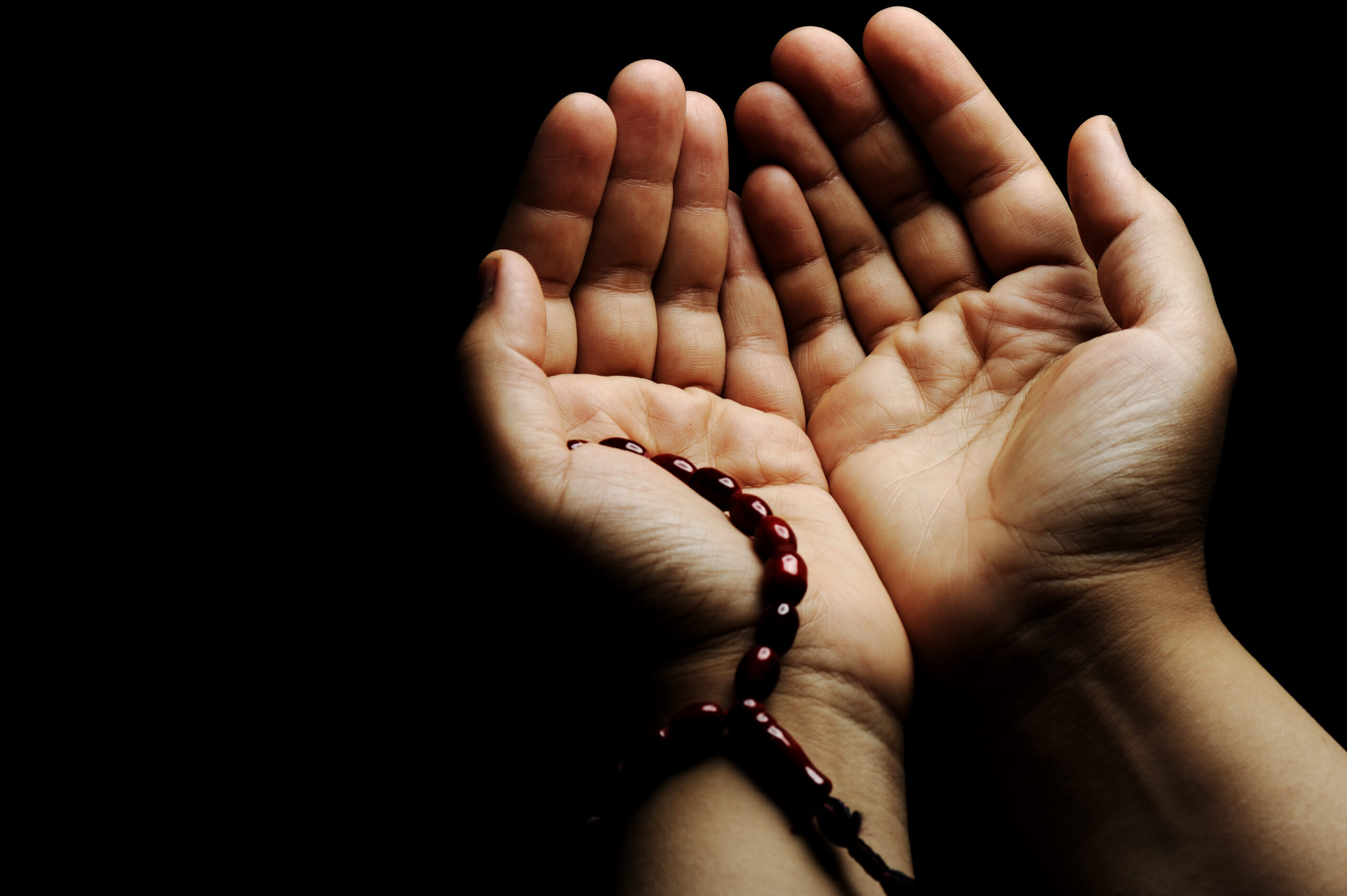Lafz-o-Noor: Daily Duas That Guard Your Day
How to Make Dua Properly: Learn the Art of Supplication (Dua) with Al Nijah Academy
Our certified teachers guide you step-by-step in the art of dua. Discover important duas for daily life, success, exams, and business. Study the etiquettes of making dua, as taught in the Quran and Sunnah. Practice daily supplications for protection, gratitude, and barakah. Strengthen your prayers with our Salah course. Join online classes in English, Urdu, and Arabic. Get real-life examples and word-by-word meanings. Build a strong spiritual routine with authentic Islamic education. Start your journey to powerful duas and success today.
Lafz-o-Noor: How to Make Dua Properly – Daily Duas for Every Muslim {50$ per month}
“Let every moment begin with a dua — protect your soul with divine words!”
Start every day with powerful duas at Al Nijah Academy. In this 4-month online course, certified teachers help you learn how to make dua properly and memorize important duas for daily life. You will study duas for morning, evening, eating, sleeping, travel, and more, with clear word-by-word meanings and real-life examples. Classes are held three times a week in English, Urdu, and Arabic. Build a strong spiritual routine, understand the etiquettes of dua from the Quran and Sunnah, and discover duas for success in exams, business, and daily challenges. Nurture faith at home with Rihlat al Zohur. Join now to protect your heart, find barakah, and experience the blessings of authentic Islamic education. Only $50 per month.

Lafz-o-Noor: Daily Duas That Guard Your Day
- Duration: 4 Months
- Frequency: 3 Classes per Week
- Languages: Urdu & English,Hindi
- Offered by: Al Nijah Quran Academy
1. Introduction to Daily Duas
- Importance of Dhikr and Duas in Islam
- Ayat and Ahadith about remembering Allah
- Benefits of daily Duas for protection and barakah
2. Duas for Morning & Evening
- Morning Adhkar with meanings
- Evening Adhkar with application
- Sunnah routine for starting and ending the day
3. Duas Before & After Eating
- Etiquettes of eating in Islam
- Duas before meals, during meals, and after finishing
- Application of gratitude in daily life
4. Duas for Sleeping & Waking Up
- Sunnah sleep routine
- Protection Duas before sleeping
- Waking up remembrance and its reward
5. Duas for Travel & Safety
- Dua before starting a journey
- Duas for riding, safety, and returning home
- Islamic etiquette of travel
6. Duas for Entering/Leaving the House
- Duas with meanings and spiritual impact
- Etiquettes while entering or leaving home
7. Duas for Entering/Exiting the Masjid and Bathroom
- Cleanliness and spiritual protection
- Respect and manners in sacred/private places
8. Duas for Protection from Evil
- Duas against jealousy, shaytaan, evil eye
- Ayat al-Kursi and 3 Quls with tafsir highlights
- Building daily habits for protection
9. Duas in Times of Stress, Sorrow & Need
- Supplications for grief, anxiety, and hardship
- Prophetic duas in times of distress
10. Duas of Gratitude and Praise
- Duas to thank Allah SWT in various situations
- Connection between shukr and barakah
11. Memorization & Revision Strategies
- Weekly memorization goals
- Group revision techniques
- How to retain duas for life
12. Meaning & Application Sessions
- Duas with word-by-word meaning
- Real-life examples of when to apply
- How to teach children and others
Our Process
How It Works !
Course Selection
Choose from a variety of Quran and Islamic studies courses suited to your level and goals.
Get Matched with a Qualified Tutor
We assign experienced and certified tutors to provide one-on-one online sessions tailored to your pace and level.
Start Learning Anytime, Anywhere
Attend interactive classes from the comfort of your home and track your progress through our supportive and flexible learning system.
Join Al Nijah Quran Academy –
Illuminate Your Path with Sacred Knowledge!
Join Al Nijah Academy and learn how to make dua properly with expert guidance. Our certified teachers help you master the etiquettes of dua, memorize important duas for daily life, and understand their meanings from the Quran and Sunnah. Take part in interactive online classes where you’ll study duas for success, exams, business, and protection. Experience flexible scheduling, personalized support, and a nurturing environment that strengthens your faith and connection with Allah. Start your journey today and discover the blessings of making dua the right way.
Customer Reviews
Our Satisfied Customers









Frequently Asked Questions (FAQs)
How to Make Dua (Based on Quran and Sunnah):
- Begin by ensuring you are clean, ideally with wudu.
- Turn to face the Qiblah.
- Lift your hands in supplication.
- Speak to Allah in a humble, gentle voice.
- Start your dua by praising Allah.
- Use Allah’s beautiful names when calling upon Him.
- Send blessings upon the Prophet Muhammad (PBUH).
- Ask Allah for forgiveness and then make your requests.
How to Start Your Dua | Step-by-Step Sunnah & Etiquette:
- Open your dua by praising Allah and sending salawat on the Prophet (PBUH).
- Face the Qiblah if possible.
- Raise your hands in prayer.
- Call upon Allah using His most beautiful names (Asma-ul-Husna).
- Be sincere and persistent in your supplication.
- End your dua with “Ameen.”
Etiquette and Sunnah of Making Dua:
- It is best to start by making wudu, then face the Qiblah, and raise your hands.
- Call upon Allah quietly and humbly.
- Praise Allah and send blessings on the Prophet (PBUH).
- Mention Allah’s names, ask for your needs—big or small—and remember others in your prayers.
- Conclude your dua with “Ameen.”
Morning Routine with Dua:
- Step 1: Recite the morning dua.
- Step 2: Read Ayat al-Kursi.
- Step 3: Recite Surah Al-Ikhlas.
- Step 4: Recite Surah An-Nas.
- Step 5: Recite Surah Al-Falaq.
- Step 6: Ask Allah for forgiveness.
- Step 7: Praise Allah.
- Step 8: Send blessings upon the Prophet Muhammad (PBUH).
Yes, you can make dua (supplication) even if you are not in a state of wudu (ablution). While being in wudu is recommended and increases spiritual focus, it is not required for making dua. According to Islamic teachings, you may supplicate to Allah at any time and in any place, regardless of your state of purity.
When making dua, be sincere and specific in your requests. Share your feelings openly with Allah and mention your needs in detail. Instead of general prayers like “O Allah, help all Muslims,” try to mention specific situations or people, such as those suffering in Gaza, Syria, or the Rohingya community. The more heartfelt and precise your dua, the more it reflects your sincerity and connection with Allah.
You can make dua in any language you are comfortable with. While reciting Quranic duas in Arabic is recommended, Allah understands all languages and knows what is in your heart. The most important thing is sincerity and focus when making dua. At Al Nijah Academy, we teach duas with word-by-word meanings in English, Urdu, and Hindi, so you can understand and apply them in your daily life.
Some essential duas for daily life include morning and evening adhkar, duas before eating and sleeping, and supplications for travel and safety. Memorizing these duas, along with Ayat al-Kursi and the 3 Quls, provides spiritual protection and brings barakah to your day. At Al Nijah Academy, our teachers guide you step-by-step in learning these important duas with their meanings and applications.
Learning how to make dua properly helps you connect deeply with Allah and ensures your supplications follow the Sunnah and etiquettes taught in Islam. When you understand the correct way to make dua, your prayers become more meaningful, sincere, and effective. This knowledge also helps you include important duas for daily life, success, and protection in your spiritual routine.
